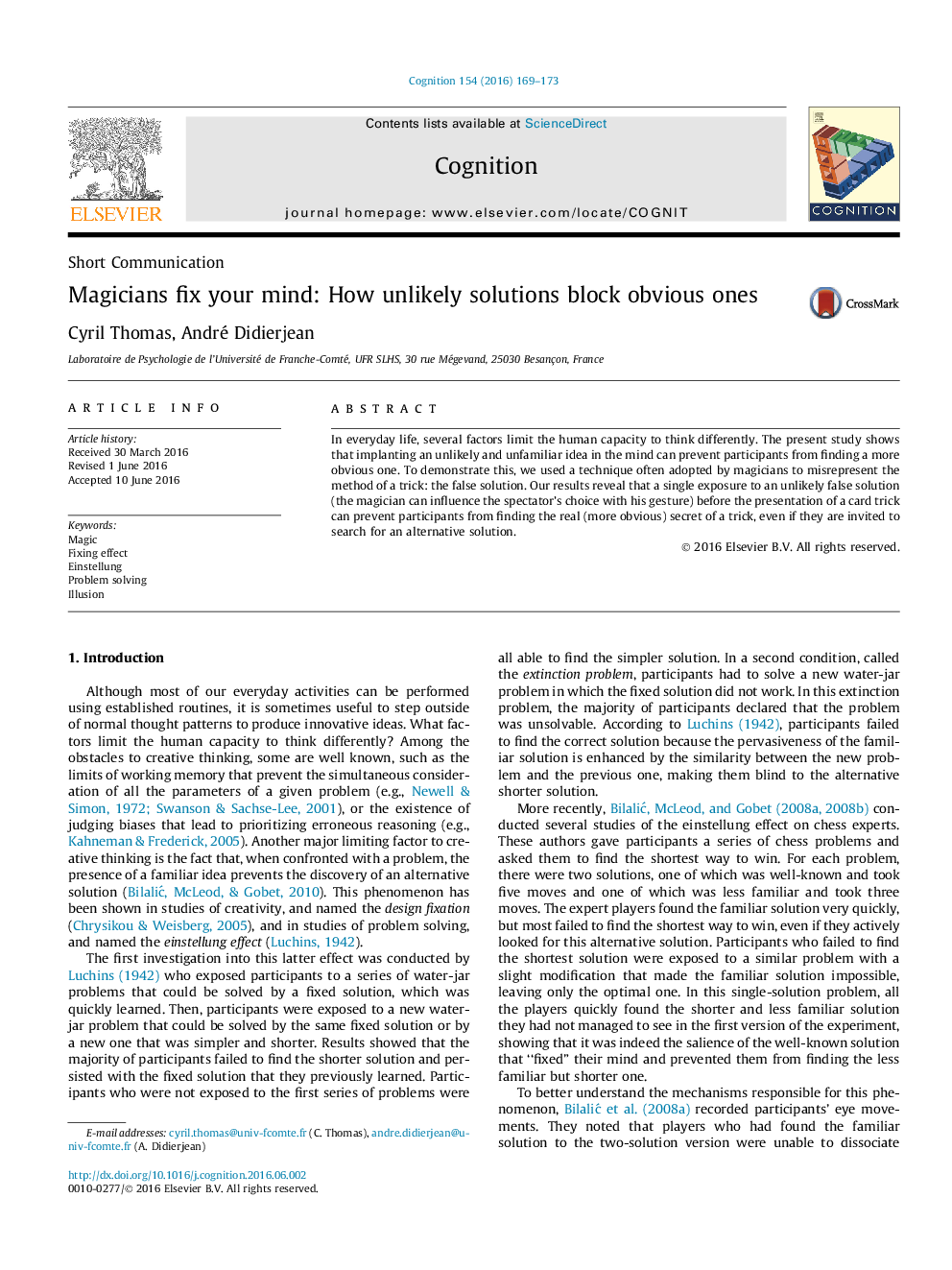| Article ID | Journal | Published Year | Pages | File Type |
|---|---|---|---|---|
| 7285983 | Cognition | 2016 | 5 Pages |
Abstract
In everyday life, several factors limit the human capacity to think differently. The present study shows that implanting an unlikely and unfamiliar idea in the mind can prevent participants from finding a more obvious one. To demonstrate this, we used a technique often adopted by magicians to misrepresent the method of a trick: the false solution. Our results reveal that a single exposure to an unlikely false solution (the magician can influence the spectator's choice with his gesture) before the presentation of a card trick can prevent participants from finding the real (more obvious) secret of a trick, even if they are invited to search for an alternative solution.
Keywords
Related Topics
Life Sciences
Neuroscience
Cognitive Neuroscience
Authors
Cyril Thomas, André Didierjean,
